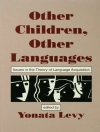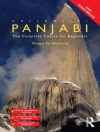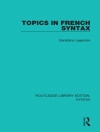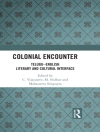This edited book explores the rising interest in minimal languages – radically simplified languages using cross-translatable words and grammar, fulfilling the widely-recognised need to use language which is clear, accessible and easy to translate. The authors draw on case studies from around the world to demonstrate how early adopters have been putting Minimal English, Minimal Finnish, and other minimal languages into action: in language teaching and learning, ‘easy language’ projects, agricultural development training, language revitalisation, intercultural education, paediatric assessment, and health messaging. As well as reporting how minimal languages are being put into service, the contributors explore how minimal languages can be adapted, localised and implemented differently for different purposes. Like its predecessor Minimal English for a Global World: Improved Communication Using Fewer Words (Palgrave Macmillan, 2018), the book will appeal to students and scholars of applied linguistics, language education and translation studies, as well as to professionals in any field where accessibility and translatability matter.
Зміст
1. In Praise of Minimal Languages.- Part I. Finding the Best Words.- 2. Balancing the Local with the Universal: Minimal English and Agricultural Training in the Pacific.- 3. The Hunt for the Simplest Possible Vocabulary: Minimal Finnish Meets Easy Finnish.- 4. Minimal English and Revitalization Education: Assisting Linguists to Explain Grammar in Simple, Everyday Words.- Part II. Language Learning and Intercultural Education.- 5. Using Minimal English (Minimal Spanish, etc.) for Non-Circular Learners’ Dictionaries.- 6. Standard Translatable English: A Minimal English for Teaching and Learning Invisible Culture in Language Classrooms.- 7. From Cultural to Pedagogical Scripts: Speaking Out in English, French and Russian.- 8. Using Minimal Language to Help Foreign Learners Understand Korean Honorifics.- Part III. Health.- Chapter 9. Adapting the Welch Emotional Connection Screen (WECS) into Minimal English and Seven Other Minimal Languages.- 10. Ways of Thinking and Talking About Cancer.-11. Minimal English for Health: Reader Accessibility in Public Health Communication About COVID-19 in Australia (With Contrastive Reference to Denmark).- 12. Seven Essential Messages for the Time of the Coronavirus.
Про автора
Cliff Goddard is Professor of Linguistics at Griffith University, Australia and a Fellow of the Australian Academy of Humanities. Much of his research lies at the intersection of language, meaning and culture. He has published widely in descriptive, theoretical and applied semantics, language description and typology, ethnopragmatics and intercultural communication.












